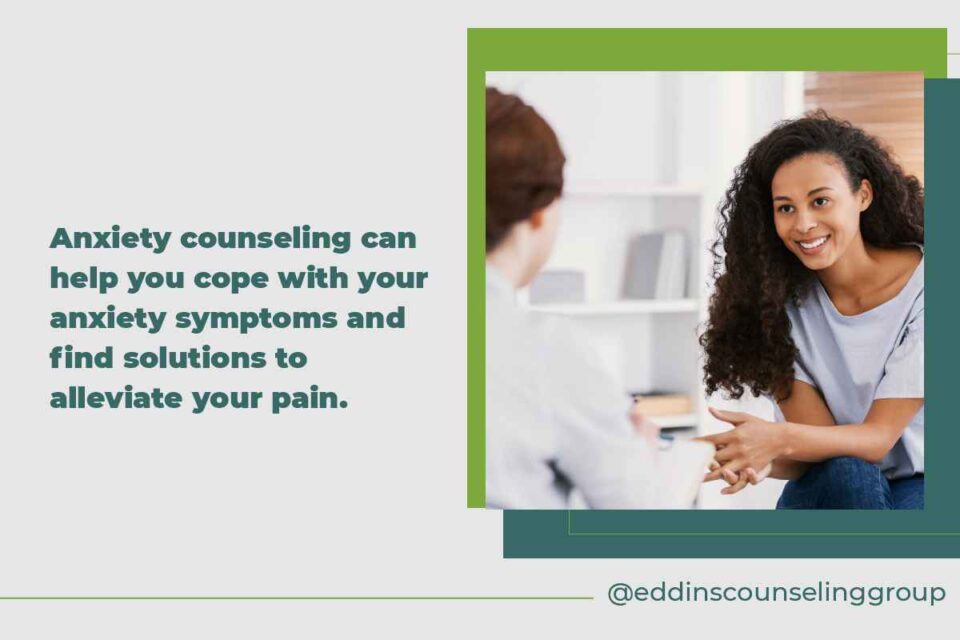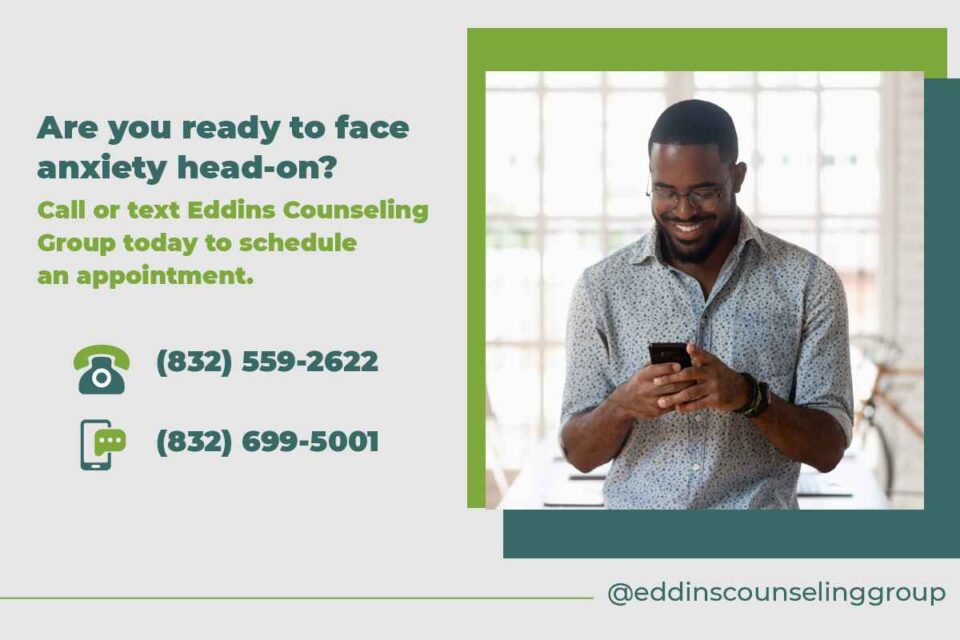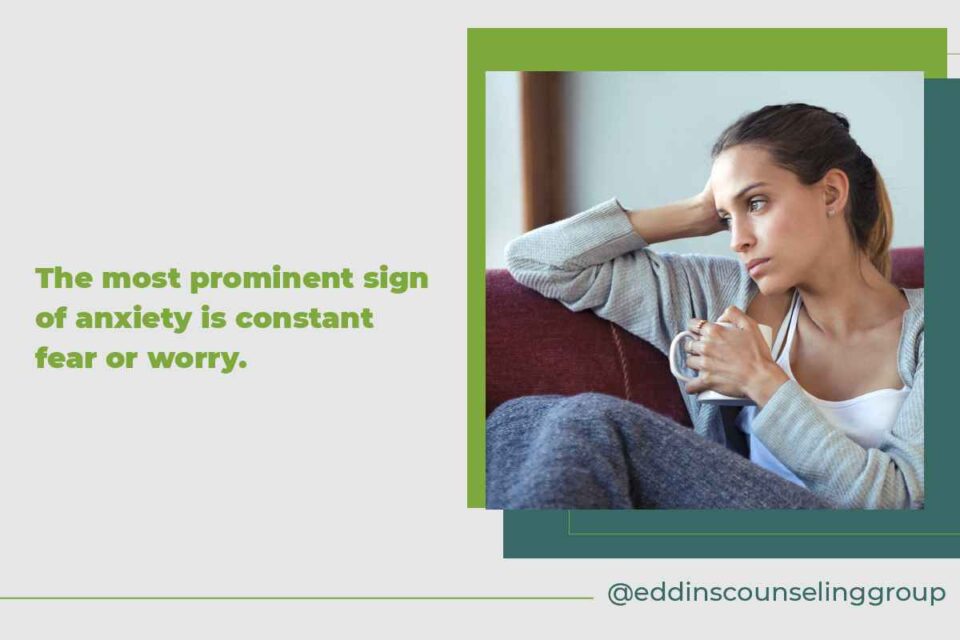February 13, 2023
Understanding Anxiety 101
Written by Sara Lane
Posted in Anxiety and with tags: understand anxiety

Anxiety disorders include a wide range of symptoms and severities. According to research, as many as 30% of adults will experience anxiety at some point in their lives – making this one of the most common mental health concerns today.
In this article, we’ll walk you through everything you need to know about anxiety:
- what it is,
- what does it feel like,
- what are the the symptoms,
- how to treat it.
Whether you’re experiencing anxious feelings or know someone who is, this informational blog is here to give you professional tips on what anxiety is and what to do about it.
What is Anxiety?
Anxiety disorders affect everyone differently, but the most prominent sign of anxiety is constant fear or worry. Yes, there are moments where you will naturally be more afraid than others, but anxiety is more complicated.
Anxiety is a 24-hour stream of thoughts about what might happen. It is an extreme form of over-thinking.
It can often lead to the sufferer talking themselves out of a lot of different opportunities or tasks given that their inner-voice feeds them a continuous stream of doubt, impossible questions, and “what-if’s”.
Do I Have Anxiety?
Though a formal diagnosis is required to say for sure, there are a few ways you can find out.
Just know that if you are suffering from this, you are not alone. Millions of Americans are diagnosed with anxiety disorders each year. Anxiety is real — and very treatable.
That being said, you can find out if the worry and apprehension you are experiencing is indeed anxiety. Take our anxiety test to know.
In addition to anxiety, other forms of anxiety include generalized anxiety, social anxiety, and postpartum anxiety.
What Does Anxiety Feel Like?
Anxiety looks different for everyone. There are physical effects of anxiety as well as emotional effects.
Some of these sensations might not apply to you, but some you may know all too well:
- Agitation
- Persistent Worry
- Fears
- Restlessness
- Fatigue and feeling tired more often than not
- Difficulty concentrating
- Irritability
- Muscle tension
- Trouble sleeping, insomnia
- Panic attacks
- Avoiding social situations due to personality changes
- Sense of dread
- Feeling on edge
- Notably strong/irregular heartbeat
- Shaking or trembling
- Feeling sick, stomach aches, headaches
These physical and mental symptoms are shared with other conditions, but a grouping of these could signal that anxiety is the cause.
From a therapeutic standpoint, a therapist or other mental health professional is properly trained to deliver a diagnosis and prescribe treatment.
If you or someone you know is experiencing these symptoms, treatment is available. You are not alone.

How Do I “Get Rid” of Anxiety?
You may never be able to “get rid” of anxiety, but you can learn to work with it and control it. Just as everyone who experiences anxiety has a unique experience that is personal to them, each person’s treatment plan will be personal to them as well.
There are specific therapeutic interventions such as mindfulness, deep breathing, and grounding that can help to alleviate anxiety in the moment.
Learning how to stop anxiety from stopping you may depend on the type of anxiety you have.
Therapy for anxiety disorders involves treating one of the following types of anxiety:
- Stress
- Generalized Anxiety
- Anxiety/Panic Attacks
- Social Anxiety
- Post-Traumatic Stress
- Trauma
- Obsessions & Compulsions
- Specific Phobias
How Do I Calm My Anxiety?
If you have ever asked anyone the question, “how do you calm your anxiety”? you have probably gotten a variety of answers, largely driven by their own experiences. That’s no different here. What works for one person is not going to work for everyone.
Nevertheless, here are a few strategies that have been known to work:
Deep Breathing
First, we recommend taking a few deep breaths and checking back into your body. Feel the texture of your hands and the pressure of your seat or feet on the floor.
This is a mindfulness exercise that helps your body remember the safety of your environment.
Grounding Techniques such as the 3-3-3 or 5-5-5 technique
You can also try the 3-3-3 trick (or whatever number works for you). This is where you focus on three things you can see, three things you can hear, and three parts of your body you can feel.
When anxiety strikes and you feel panic starting to set in, getting your mind to focus on these sensory experiences helps your brain reconnect to the safety of your environment. This is a process called grounding, and is a common treatment for anxiety.
Talk to Someone You Trust
Perhaps you can speak to someone you love and trust who will understand your concerns. Having someone on your side to be there as you experience these anxious feelings can be a significant source of support.
Limit Your Exposure to Things That Make You Feel Worse
Next, try to put down anything that could potentially make you feel worse or more anxious. For example:
- avoid caffeine and alcohol
- put down your phone
- limit your intake of social media or news
- get some fresh air
If you notice that checking Facebook and Instagram tends to heighten your symptoms of anxiety, consider taking a social media detox for a while to get yourself back on track.
Participate in Activities
If you try something that doesn’t work, that’s ok.
Keep looking for ways to curb your symptoms of anxiety and improve your mental health.
For example, it’s a great idea to take part in activities that soothe you. These can include:
- Go for a walk
- Do some arts and crafts
- Journal
- Take a bike ride
- Practice yoga
- Take a dance class
- Connect with a trusted friend
- Watch a movie
- Color or make art
Whether you choose an activity you like or something that’s brand new to you, the act of doing something may help redirect your thoughts.
What Causes Anxiety?
Anxiety is a type of behavioral disorder that is characterized by overwhelming feelings of fear and worry.
The cause can depend on a few different factors including your genes, life transitions, and your exposure to trauma.
1) Some people have felt anxious all of their lives.
2) Others feel a period of anxiety during and/or after a significant life transition, such as:
- a divorce,
- the death of a loved one,
- a career change,
- a diagnosis of illness, or
- a change in health conditions.
3) Heightened anxiety can be a result of trauma, even trauma that occurred several years in the past.
If you were more prone to fear, anxiety, and worry, any of these circumstances could cause anxiety to precipitate. Certain personality types are also more prone to experience anxiety than others.
Understanding the source of your anxiety and how it formed can be helpful in understanding your best treatment.
Your therapist can walk you through a personalized treatment plan in your early therapeutic sessions together, and find a strategy that works for you.
Anxiety treatment can be a process of trial and error before you find what works for you. Ultimately, this process is best done with loving support and unconditional love at your side.
How to Deal with Anxiety?
Anxiety Treatment
One of the mental health field’s most effective solutions is to attend anxiety therapy sessions with a licensed professional.
This person can help you develop ways to cope that are specific to you, your life, and your situation. Their goal is to help you live a more joyous life without being under the influence of your fear.
There are many ways to deal with your anxiety that can be long-lasting and effective.
You can work to identify your triggers and, when triggered, identify what made you feel this way. Identifying feelings and their sources can remove their mysterious power over your mind.
Mindfulness Practice
Another way to treat your anxiety could be to involve yourself in daily mindfulness practice. Experts have noted how beneficial mindfulness is in coping with stress, anxiety, and fear of the unknown.
Anxiety Medication
Additionally, some people who experience anxiety have found success with temporary or long-term medication treatment.
Some medicines work in the moment to calm a panicking or anxious mind. These are used much like an inhaler for people who experience asthma.
Combined with talk therapy and specialized anxiety treatments, these interventions can make a significant difference on a person’s quality of life.

When to Seek Help
Just because anxiety affects you doesn’t mean you have to suffer alone.
Be sure to reach out when you’re feeling anxious, and tell someone you trust: a teacher, pastor, mental health counselor, friend, or family member.
Your mental health matters.
No matter your background or fear triggers, finding support in times of crisis is an important part of finding a treatment that works for you.
It’s best to walk the journey with others who can care for and support you along the way.
If you’re considering therapy to treat your anxiety, or you want to confirm your feelings with a diagnosis from a mental health professional, reach out to our friendly client care coordinator at Eddins Counseling Group. They will set you up with one of our therapists in Houston, Montrose, or Sugar Land.
We’re here to help you process your experience and find the treatment plan that works for you.
5 Ways to Reduce Anxiety
Get instant access to your free ebook.
Grounding & Self Soothing
Get instant access to your free ebook.
Create Healthier Thoughts & Feelings
Get instant access to your free ebook.
Why You Feel This Way
Get instant access to your free ebook.

















